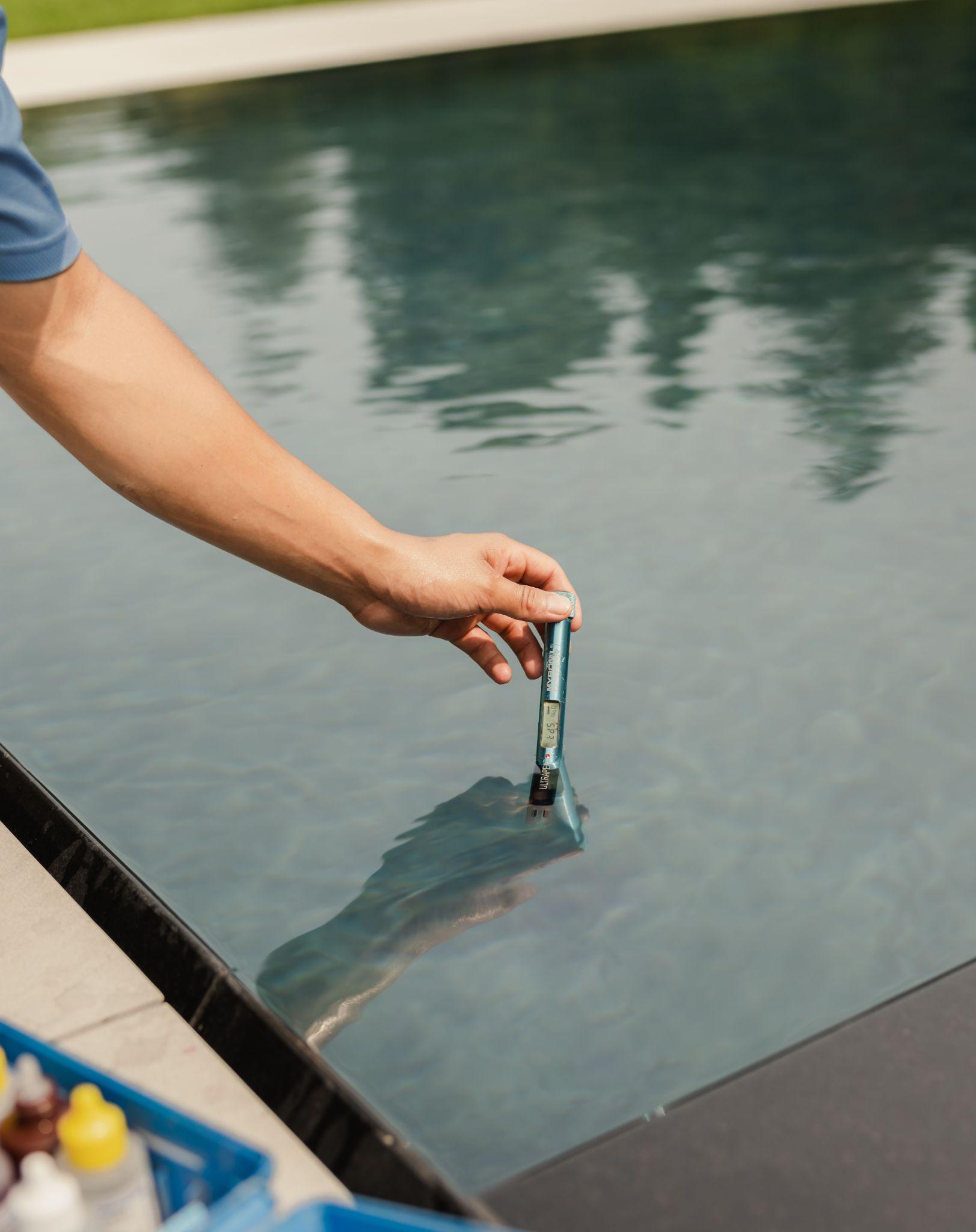Think about the last time you jumped into a swimming pool. Felt great, right? You probably didn’t think about all the behind-the-scenes magic that goes into keeping that pool water perfect. It’s a whole world of careful chemical balancing. That’s where the real action happens to make your swim fun and safe. Let’s dive into this unseen but essential part of pool care and see what it’s all about.

Laying the Foundation for Safe Pool Maintenance
Chemicals like chlorine and bromine are essential for maintaining hygiene in pools. However, they can pose risks if not handled or stored correctly. With its rich history of designing and building stunning swimming pools, Tortorella AutoChem Division brings its expertise to the forefront in educating clients about these practices.
The Essentials of Chemical Storage and Handling
Discover the critical elements of a safe and efficient chemical storage area, where every detail matters in preventing contamination and ensuring safety.
- Design and Construction of Storage Areas: The design of chemical storage areas is pivotal. Incorporating spill containment features, or secondary containment, is essential to prevent chemicals from mixing with other substances. Adequate safety equipment, such as safety showers and eyewash stations, should be readily available.
- Air Handling in Indoor Venues: Adherence to local building codes or standards like the American Society of Heating, Refrigerating and Air-Conditioning Engineers (ASHRAE) is essential. Separate air handling systems for chemical areas from the rest of the building and ensure good ventilation to prevent the buildup of fumes.
- Engineering Controls: Installing alarms to notify staff if the recirculation pump shuts down and devices to deactivate chlorine/pH feed pumps in case of low or no flow are critical safety measures.
- Security Measures: Securing the storage area to limit access is vital, mainly to prevent access by children and animals. Locking mechanisms for chemical controllers are also essential to prevent unauthorized tampering.
Best Practices in Chemical Storage
Learn the art of storing pool chemicals, where strategic organization meets rigorous safety standards.
- Compliance with Codes: Store pool chemicals in compliance with local or state building and fire codes. Keep them below 95°F/35°C and in conditions recommended by the manufacturer.
- Safe Storage Practices: Store each chemical separately in its original, labeled container. Avoid storing chemicals near heat sources and flames, and maintain good housekeeping in the storage area.
- Disposal of Chemicals: Properly dispose of deteriorating, unwanted, or unlabeled pool chemicals. Consult the product’s manufacturer or local/state hazardous materials groups for disposal procedures.
Safe Handling of Chemicals
Unveil the secrets to handling pool chemicals safely, blending knowledge, skill, and caution to create a harm-free environment.
- Training and Qualification: Ensure that only trained individuals handle pool chemicals. Maintain clear communication among staff handling chemicals.
- Handling Procedures: Follow the manufacturer’s instructions carefully. Use personal protective equipment and clean tools for handling each chemical. Keep water away from chemical containers to prevent accidental mixing.
- Emergency Response: Have a clear emergency response plan for chemical spills and incidents. Equip the area with emergency contact information and practice response procedures with first responders.
Maintenance and Repair
Dive into proactive maintenance and repair, where regular checks and timely interventions keep chemical handling systems in peak condition.
- System Shutdown Procedures: Understand and follow the protocols for shutting down and servicing chlorine/pH control feed and recirculation systems.
- Preventive Maintenance: Establish a preventive maintenance program. Regularly check and replace equipment parts before they fail, such as feed pump tubing, clamps, and check valves.

Training for Safety
Tortorella AutoChem Division emphasizes the importance of comprehensive training for staff in pool chemical safety. The training should cover a range of topics from the impact of chemicals on water chemistry to safe storage practices and first aid for chemical exposures. Tortorella even offers free chemical training to staff like lifeguards, highlighting its commitment to safety.
Implementing CDC and OSHA Guidelines
Adhering to guidelines from the Centers for Disease Control and Prevention (CDC) and the Occupational Safety and Health Administration (OSHA) ensures chemical handling and storage safety. Tortorella’s practices align with these guidelines. It ensures that its methods are up-to-date and effective.
Safeguarding Pools with Precision: Tortorella AutoChem’s Dedication to Chemical Safety and Expertise
The proper storage and handling of pool chemicals are critical to ensuring the safety of staff and patrons in commercial swimming pool environments. Tortorella AutoChem Division’s approach, deeply rooted in adherence to safety standards and comprehensive training, sets a high bar in the industry. Our commitment to providing education and resources to our clients and staff exemplifies our dedication to safety and excellence in pool maintenance.
